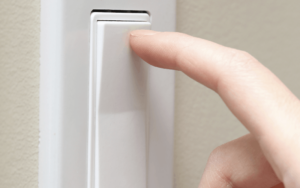What Size AC Should I Get For My Florida Home?
If you need to replace your current AC or are installing one for the first time, it’s important to select and install the right size AC for your home.
So, how do you know what AC size is right for your home?
Contrary to misconceptions, the size of your AC cannot be determined by just using your home’s square footage.
The only way to accurately determine the right AC size for your home is to have an HVAC professional perform a “Manual J Load Calculation.” This calculation takes into account a variety of factors that calculate how much heat needs to be removed from your home to keep it cool.
Now, you probably have questions like:
- Why does the AC size even matter?
- What factors go into a load calculation?
- How are AC sizes measured?
Below, we’ll answer these three questions so you’re prepared to buy the right size for your home.
Rather just have a professional determine what AC size is needed for your home?
Contact Climate Design to learn more about our AC installation process in the Clearwater-St. Pete or Bradenton area. Our technicians will help you find the perfect AC size for your Florida home.
Schedule onlineSee AC installation details
Why does the AC size even matter?
As we alluded to above, it’s important that you install the right size AC system for your home or you will run into issues in the future.
If your AC is too big for your home … it will quickly cool your home then shut off. This repetitive on-and-off is called “short-cycling” and can cause high energy bills, uneven cooling throughout your home and a shortened lifespan for your AC.
On the flip side, having an AC that is too small for your home is also problematic.
If your AC is too small for your home … it will not be able to properly cool your home and will run all the time to compensate. This overuse can lead to the same issues that an oversized AC creates (e.g. increased bills, uneven temperatures and a shortened AC lifespan).
Now that we’ve covered why proper AC sizing is vital, let’s talk about what goes into a load calculation.
What factors go into a load calculation?
If you’re investing in something as long-term as an AC, it’s important to hire a high-quality technician who will take the time to perform a proper load calculation so you can avoid the issues listed above.
A load calculation assesses how much heat should be removed from your home (per hour) to keep it cool.
While this seems like a simple concept, the load calculation must consider factors such as:
- Where you live (climate)
- Quality and location of the ductwork
- Quality and type of insulation
- Height of the ceilings
- Type of flooring (carpet vs wood)
- Size, layout, orientation of your home
- Number of and age of windows
- Number of people living in your home
- Number of doors in your home
- Appliances in your home
- Type of roofing
- Square footage of your home
Let’s examine a few factors in detail:
- Where you live (climate): Florida homeowners living in a hot, humid climate will need a different AC size than someone living in New York.
- The orientation of your home: If most of your windows are west-facing, your home will quickly overheat since the sun will directly strike the glass.
- The number of people living in your home: The more people that live in a home, the more body heat is generated, creating more heat that the AC unit must remove.
Luckily, a high-quality HVAC tech will consider all the above factors during a load calculation and tell you what size AC you’ll need. Next, we’ll look at how AC systems are sized.
Note: If a technician says they can figure out what AC size your home needs with only your home’s square footage, we suggest going with a different contractor to avoid the risk of getting the wrong AC size for your home.
How are AC sizes measured?
After an HVAC technician performs a load calculation, they will provide the size of AC you need to buy in British Thermal Units (BTUs). This is because ACs are sized by the amount of heat they can remove from your home, not by their physical size in cubic feet. For reference, 1 BTU is the amount of heat produced by 1 lit match.
So, for example, a 13,000 BTU AC would get rid of the heat produced by 13,000 lit matches in your home within an hour.
Since 1 lit match doesn’t produce much heat, most residential AC system sizes range between 12,000 and 60,000+ BTUs.
In addition to BTUs, AC size can also be expressed in tonnage (1 ton is the equivalent of 12,000 BTUs). Below is a quick reference guide for the conversion rate, since tonnage is sometimes the only measurement given when you go shopping for ACs.
All in all, to find the exact AC size for your home, you’ll want an HVAC technician to come by your home, assess your cooling needs and perform a load calculation.
Ready to install a new AC in your Florida home? Contact Climate Design
Installing an AC can be stressful, especially if you have questions about the size of the AC unit that would be best for your home and budget.
At Climate Design, we have five decades of experience helping Florida homeowners install the right size ACs for their homes, and we’d be delighted to help you too.
In addition, we offer cost-conscious financing options for homeowners to help make the installation process as affordable as possible for you.
You May Also Like

Why AC Tuneups Are So Beneficial to Your Comfort and Wallet
Living in Sarasota, FL, means embracing the sunshine and heat. It also means relying heavily on your air conditioner to stay comfortable.… Continue Reading Why AC Tuneups Are So Beneficial to Your Comfort and Wallet…

The Hidden Dangers of Ignoring a Shower Leak in Largo, FL
A shower leak is the last thing you want when you bathe in the morning to get you going or in the… Continue Reading The Hidden Dangers of Ignoring a Shower Leak in Largo, FL…

5 Tips for Preventing Electrical Accidents & Injuries
Electricity is ubiquitous in our day-to-day lives, making it easy to forget just how dangerous it can be. Household electrical accidents &… Continue Reading 5 Tips for Preventing Electrical Accidents & Injuries…

